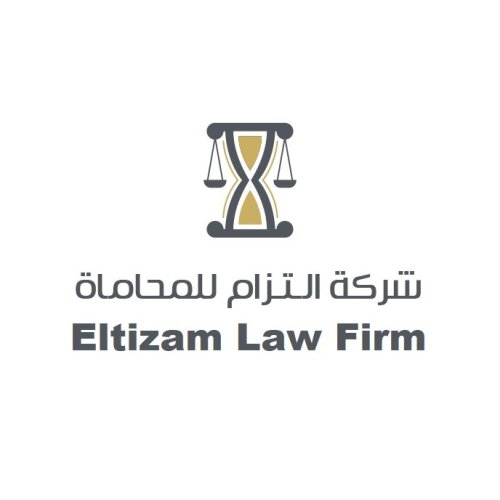Best Renewable & Alternative Energy Lawyers in Saudi Arabia
Share your needs with us, get contacted by law firms.
Free. Takes 2 min.
Or refine your search by selecting a city:
List of the best lawyers in Saudi Arabia

About Renewable & Alternative Energy Law in Saudi Arabia
Renewable and alternative energy law in Saudi Arabia governs the development, regulation, and use of sustainable energy resources such as solar, wind, geothermal, and biomass. The Kingdom has made significant investments in diversifying its energy mix, aiming to reduce its dependence on fossil fuels and meet future energy demands in an environmentally responsible way. Major national initiatives, such as the Saudi Vision 2030 and the National Renewable Energy Program (NREP), place renewable energy at the heart of economic and energy policy. Legal frameworks are being developed and continuously updated to support new projects, foreign investments, and the integration of global best practices in the energy sector.
Why You May Need a Lawyer
Navigating the renewable and alternative energy sector in Saudi Arabia can be complex, particularly for individuals and businesses unfamiliar with local regulations and market expectations. Here are some common situations where legal assistance may be essential:
- Drafting and negotiating contracts for energy projects, equipment purchase, or technology transfer.
- Securing permits, licenses, and approvals for setting up renewable energy facilities.
- Understanding and complying with environmental regulations and impact assessments.
- Addressing land usage rights and resolving related disputes.
- Facilitating foreign direct investment and compliance with local ownership requirements.
- Managing joint ventures or partnerships with local or international entities.
- Resolving contractual disagreements and disputes under Saudi law.
- Protecting intellectual property in relation to renewable technologies and solutions.
A knowledgeable lawyer can help navigate these complexities, avoid costly mistakes, and ensure regulatory compliance throughout your project.
Local Laws Overview
Saudi Arabia’s legal landscape for renewable and alternative energy is anchored by economic diversification goals and dedicated legislative efforts. Key aspects include:
- Regulatory Bodies: The Ministry of Energy, the Saudi Energy Efficiency Center, and related agencies oversee the sector and set policies for project approvals and standards.
- Licensing and Permits: All projects require permits and must comply with specific regulations, including environmental impact studies and adherence to technical codes.
- Investment Laws: The Saudi Arabian General Investment Authority (SAGIA), now known as the Ministry of Investment, facilitates foreign investment and outlines the requirements for international companies entering the market.
- Procurement and PPPs: Many renewable projects are developed through public-private partnerships (PPPs) and the national auction system, following transparent procurement processes.
- Local Content Requirements: Policies encourage the use of local labor, materials, and manufacturing, impacting contract structures and project planning.
- Grid and Transmission Rules: Guidelines exist for the integration of renewables into the national grid, including rules for net metering and grid access.
- Dispute Resolution: Contractual and regulatory disputes are typically handled through Saudi courts or, in some cases, arbitration.
Keeping up with ongoing legislative changes is crucial, and a legal advisor helps ensure compliance with all applicable laws.
Frequently Asked Questions
What types of renewable energy projects are currently promoted in Saudi Arabia?
Saudi Arabia supports solar photovoltaic, wind, concentrated solar power, waste-to-energy, and geothermal projects, with a strong emphasis on large-scale solar and wind investments.
Is foreign investment allowed in the Saudi renewable energy sector?
Yes, foreign investors are welcome, provided they meet local registration and partnership requirements set by the Ministry of Investment and sector-specific regulators.
What permits are required to start a renewable energy project?
Permits from the Ministry of Energy, environmental agencies, and sometimes local municipalities are necessary, covering site use, construction, environmental impact, and grid connection.
How are renewable energy projects financed in Saudi Arabia?
Financing often involves a mix of private investment, public funding, international finance, and public-private partnerships, with the government supporting certain projects through auctions and procurement mechanisms.
Are there local content requirements for renewable energy projects?
Yes, regulations require a certain percentage of local labor, services, and materials to be used in most projects, encouraging domestic industry growth and employment.
How does Saudi law address land ownership for renewable energy projects?
Land for large renewable projects may be allocated by the government or leased, and legal agreements must be meticulously structured to ensure authorized use and access throughout the project's lifespan.
What environmental regulations apply to these projects?
Projects must comply with environmental impact assessment rules, pollution control standards, and biodiversity protections. Noncompliance can result in delays, penalties, or project cancellation.
What role do public-private partnerships play?
Public-private partnerships are a primary vehicle for project development, providing structure, risk sharing, and access to government support, but they require careful legal documentation and negotiation.
How can disputes in the renewable energy sector be resolved?
Disputes may be resolved in Saudi courts or through arbitration, depending on the contract terms and nature of the issue. Legal counsel is recommended for both prevention and resolution.
How can I protect my technology and intellectual property?
Register patents, trademarks, and copyrights locally and ensure all technology agreements include robust intellectual property protections, with legal support to prevent infringement.
Additional Resources
Here are some resources and organizations that can offer further assistance or information regarding renewable and alternative energy law in Saudi Arabia:
- Ministry of Energy - For regulatory guidelines and project approval processes.
- Ministry of Investment (formerly SAGIA) - For investment regulations and foreign company registration.
- Saudi Energy Efficiency Center (SEEC) - For energy efficiency policies and practices.
- King Abdullah City for Atomic and Renewable Energy (KACARE) - For technical advice and research on renewables.
- Saudi Electricity Company - For grid integration and electrical regulations.
- Environmental bodies, such as the National Center for Environmental Compliance - For environmental impact standards.
- Industry associations - For networking and industry updates.
- Legal advisory firms - For tailored legal counsel on your specific needs.
Next Steps
If you need legal assistance in the renewable and alternative energy sector in Saudi Arabia, consider the following steps:
- Identify your project or issue and gather all relevant documentation and information.
- Reach out to a lawyer or legal firm with expertise in Saudi energy law and experience in renewable sector projects.
- Schedule a consultation to discuss your goals, challenges, and legal requirements.
- Work with your advisor to establish a clear legal strategy, covering contracts, compliance, dispute resolution, and risk management.
- Regularly monitor regulatory changes to ensure ongoing compliance.
Starting the process with experienced legal support ensures your project aligns with Saudi regulations and global best practices, allowing you to focus on building a sustainable and successful energy business.
Lawzana helps you find the best lawyers and law firms in Saudi Arabia through a curated and pre-screened list of qualified legal professionals. Our platform offers rankings and detailed profiles of attorneys and law firms, allowing you to compare based on practice areas, including Renewable & Alternative Energy, experience, and client feedback.
Each profile includes a description of the firm's areas of practice, client reviews, team members and partners, year of establishment, spoken languages, office locations, contact information, social media presence, and any published articles or resources. Most firms on our platform speak English and are experienced in both local and international legal matters.
Get a quote from top-rated law firms in Saudi Arabia — quickly, securely, and without unnecessary hassle.
Disclaimer:
The information provided on this page is for general informational purposes only and does not constitute legal advice. While we strive to ensure the accuracy and relevance of the content, legal information may change over time, and interpretations of the law can vary. You should always consult with a qualified legal professional for advice specific to your situation.
We disclaim all liability for actions taken or not taken based on the content of this page. If you believe any information is incorrect or outdated, please contact us, and we will review and update it where appropriate.
Browse renewable & alternative energy law firms by city in Saudi Arabia
Refine your search by selecting a city.
















